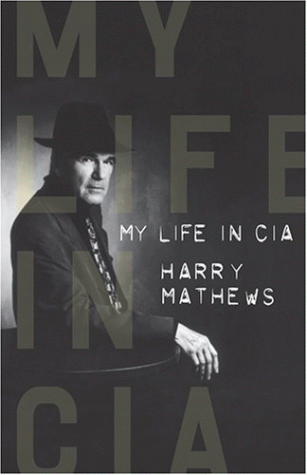Harry Mathews is an absurdist and the only American member of the French experimental literary organization OuLiPo. The bulk of his writing is obsessed with the logical pleasures of structured game play. He is bald. No more than four people alive today would mistake Mathews for a secret agent, but in the late 1960s, after a vacation in Laos to visit a friend who also happened to be a British diplomat, Mathews found himself the subject of a rumor linking him with the CIA. For many years, even his close Parisian friends were convinced Mathews was working undercover, despite his protests. Exasperated, Mathews decided to begin acting the part he’d been arbitrarily assigned, and this is where the central action of My Life in CIA, a novel disguised as a memoir disguised as a novel, takes root. Mathews (the character) knows that an agent needs a cover, so he sets up a fake travel agency that features vacation packages to Soviet nuclear facilities. He purchases a second-hand briefcase plastered with international travel decals and places it conspicuously in his front hallway. He delivers mysterious packages in sight of his suspicious friends and marks buildings with chalk. Like any worthwhile pretend spy, Mathews becomes so skilled at the art of deception that he attracts the attention of honest-to-goodness international agents who eagerly return the volley in Mathews’s game, luring him down a treacherous political rabbit hole. All of this is set against the backdrop of Paris in the early seventies, the streets of which brim with protesters spurred on by the bloodshed in Chile, the Official Lie of Watergate, and the secret U.S. military campaign in Cambodia.
Mathews has employed the formal strategies of the detective novel in past work, and the destabilizing paranoia of the ColdWar served as a backdrop to Tlooth, a surrealist chronicle of the exploits of a group of inmates at a Soviet prison camp. Here, though, Mathews allows the specter of the Cold War to permeate the narrative, while teasing out a host of troubling questions concerning identity, accountability, and truth. These were years during which everyone was held in suspicion, and this suspension of identity lends a dark power to Mathews’s transformation from willing player to played victim. Even as the focus turns away from the world of espionage, Mathews’s prose aches in response to the gradual destruction of what amounts, essentially, to a mode of being. Toward the end of the book he attends a performance of Swan Lake featuring Rudolf Nureyev and Natalia Makarova. During a difficult sequence, Nureyev fails to catch Makarova and she crashes to the ground, seemingly paralyzed. She soon recovers and finishes the performance, but, Mathews observes, “Since the age of ten I had made a habit of escaping from the world of everyday disappointment into the paradise of art… Makarova’s pratfall was so pitiful, so demeaning (for all of us, not only her) I felt a dream I’d been dreaming all my life had definitively ended.”
Although My Life in CIA crackles with Mathews’s characteristic wit (early on he delivers a convincing lecture on “Travel-Stress Dyslexia,” a condition he knows nothing about, to a group of afflicted American tourists), it’s in sober observations such as Makarova’s fall that the crushing enormity of the period becomes clear. My Life In CIA illustrates with humor, grace, and savage precision the degree to which the logical zero-sum game of the superpowers permanently dismantled that critical faculty that once seemed so close at hand: the ability to understand exactly who it is we think we are.





